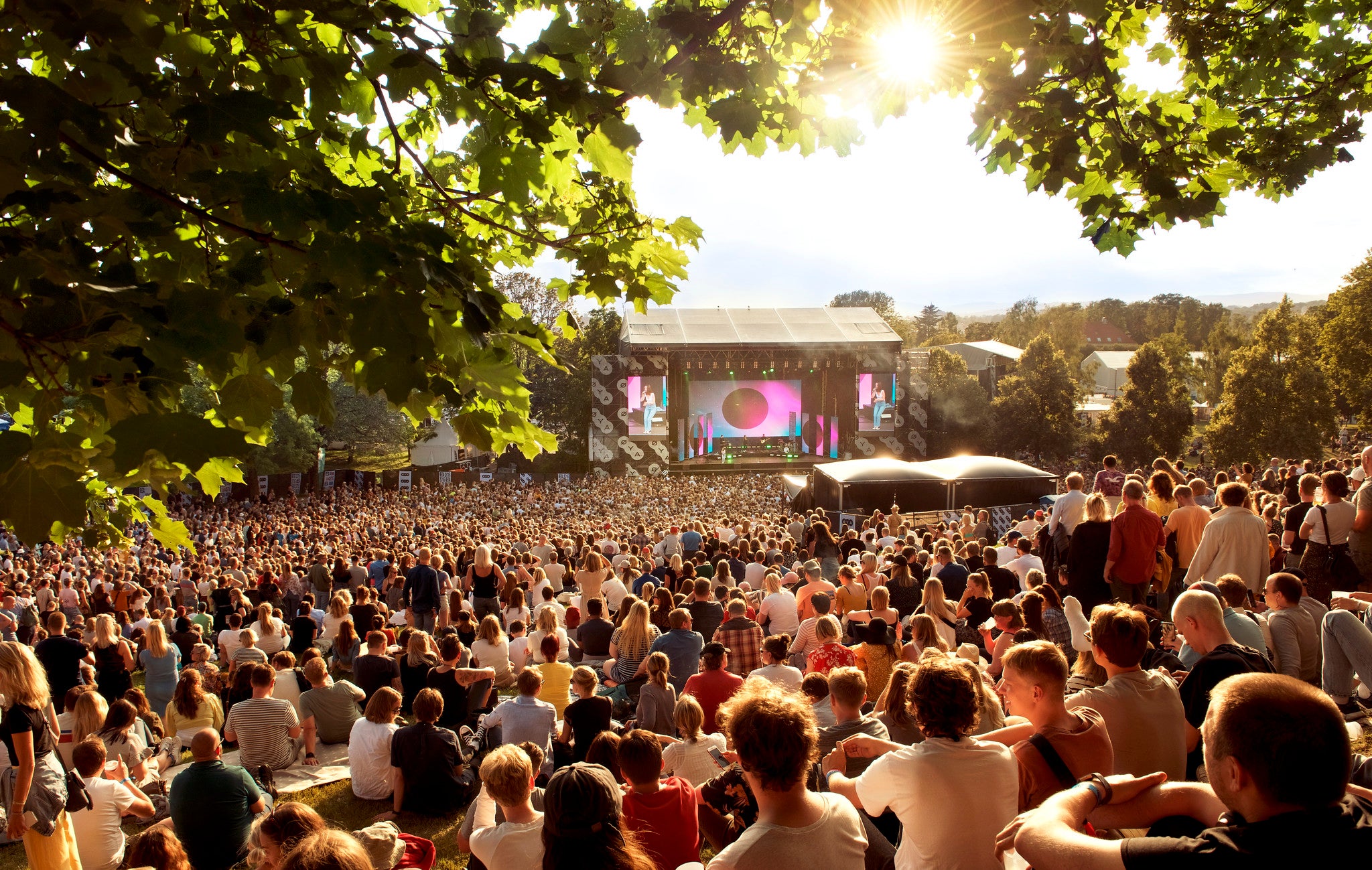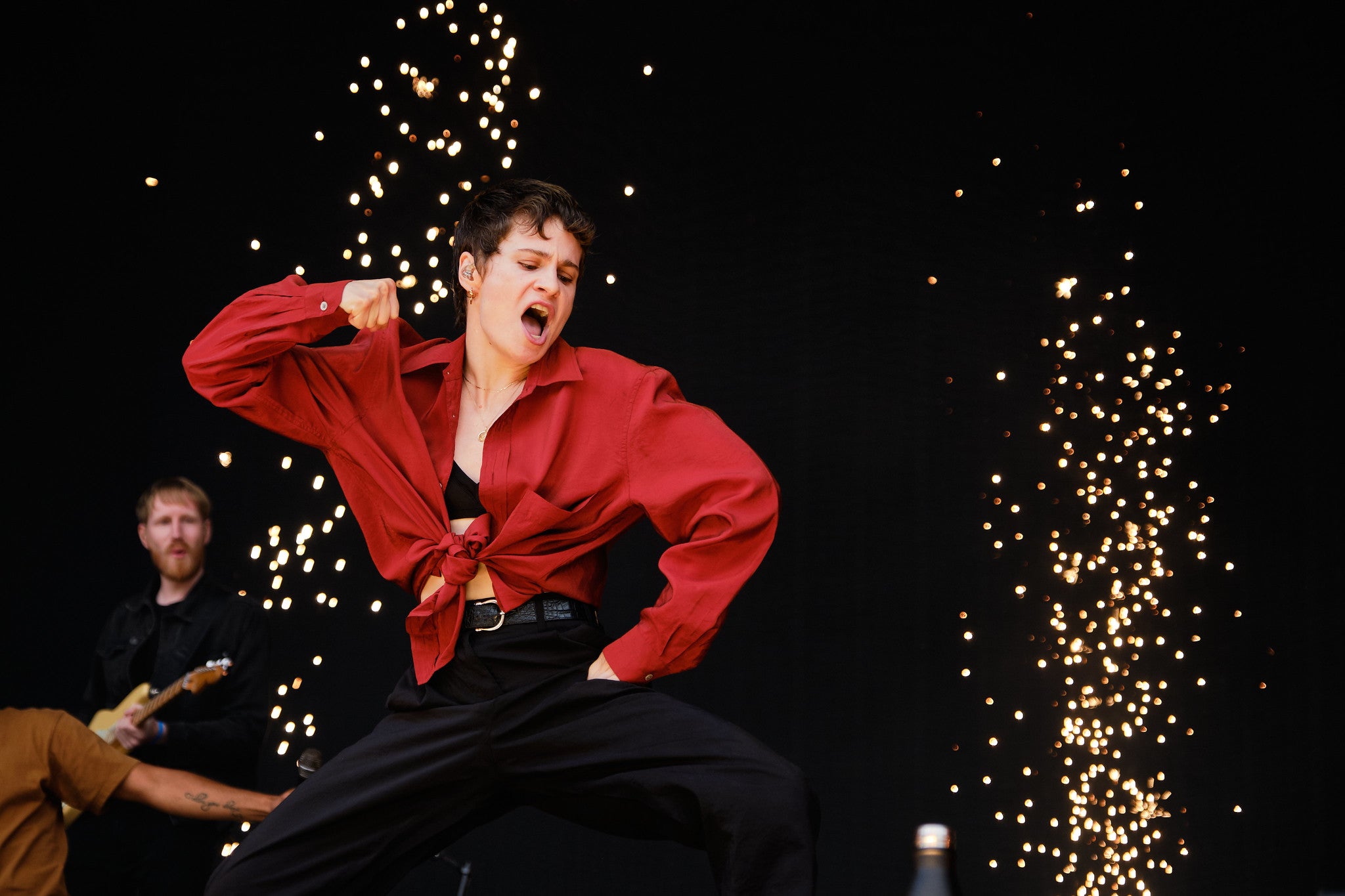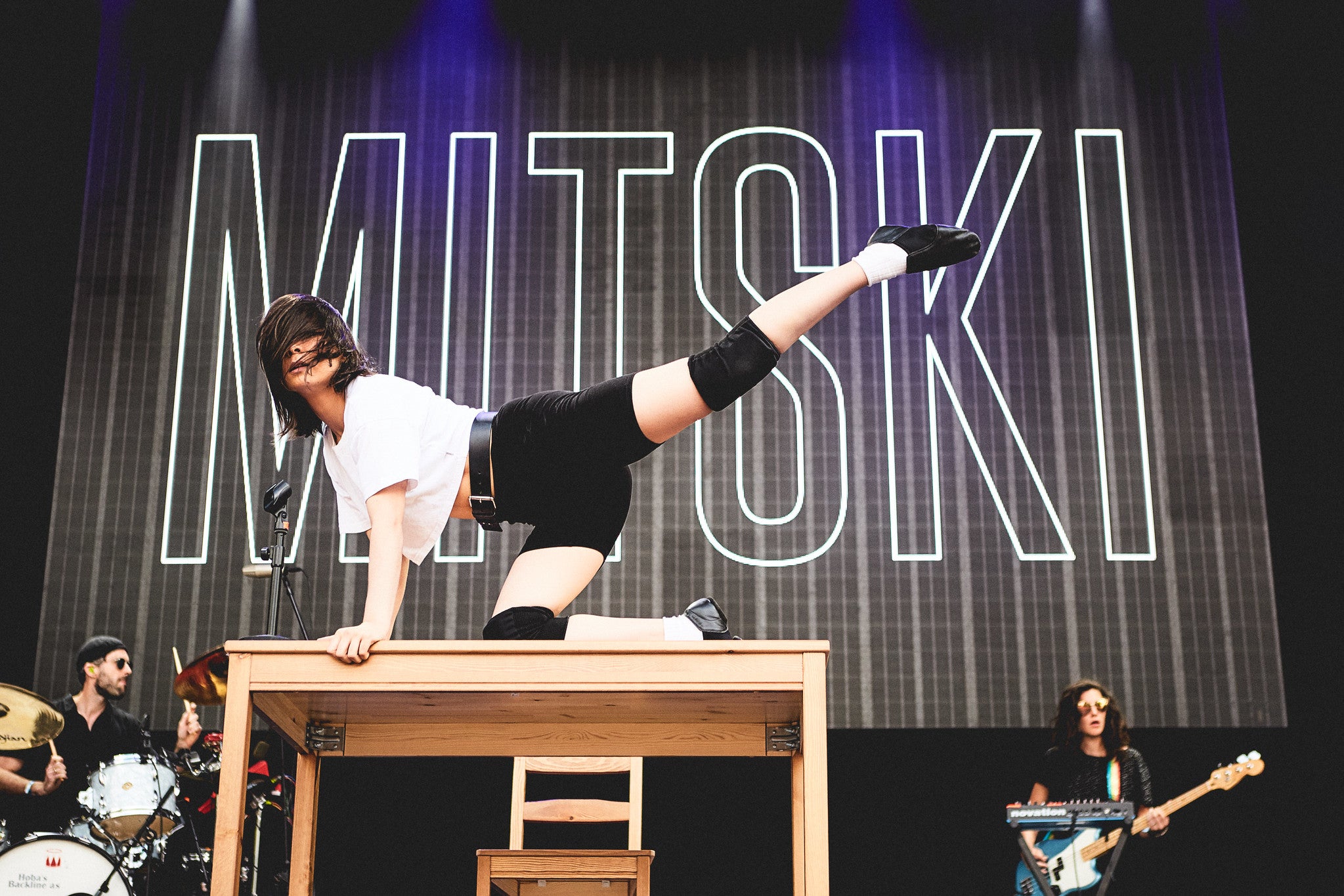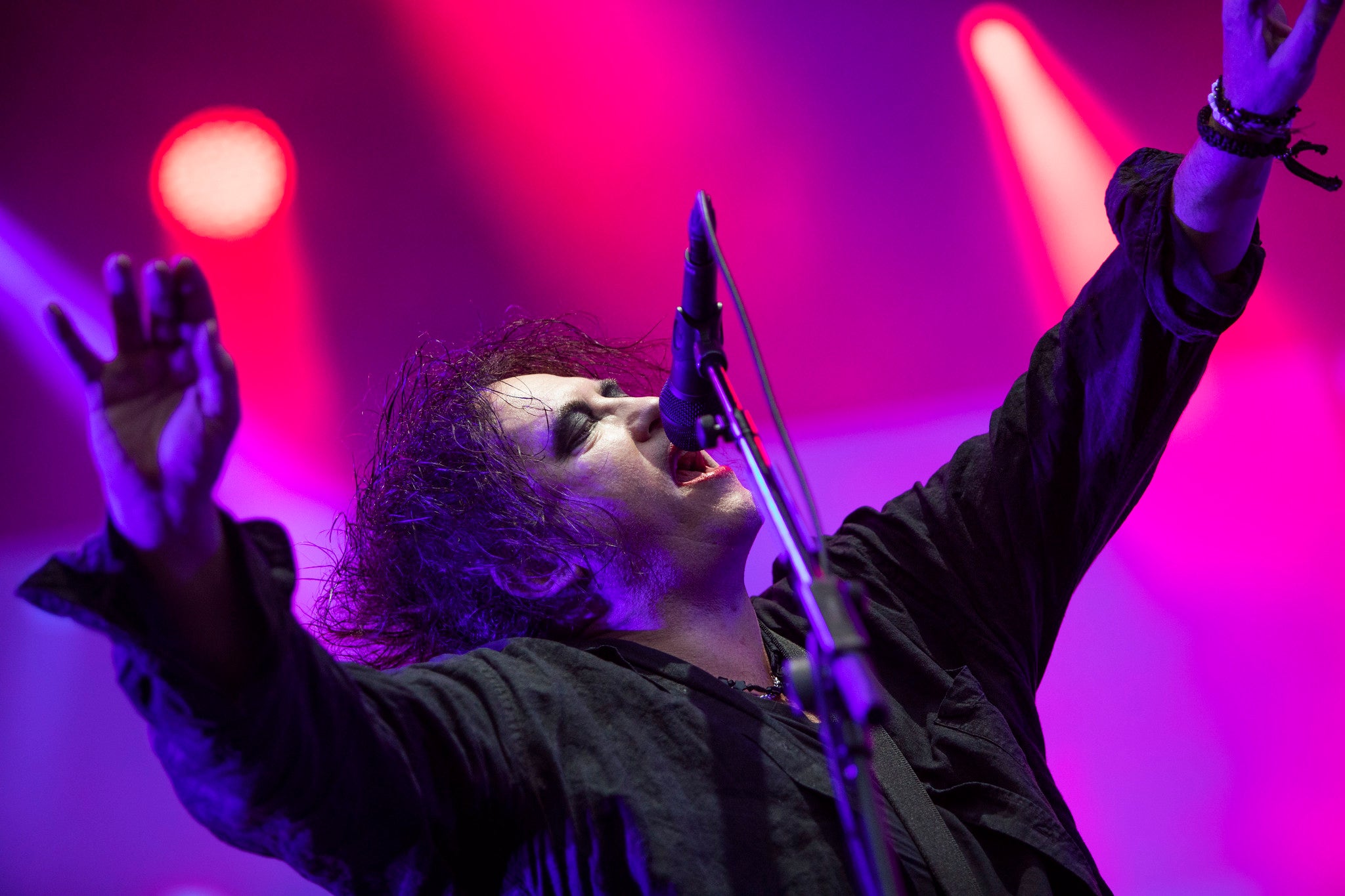When it comes to sustainable festivals, Scandinavia has the UK beat – and Oya is proof of that
James Blake, Mitski and Christine and the Queens gave excellent performances at Oslo's Oya Festival, one of the most environmentally conscious festivals around

Your support helps us to tell the story
From reproductive rights to climate change to Big Tech, The Independent is on the ground when the story is developing. Whether it's investigating the financials of Elon Musk's pro-Trump PAC or producing our latest documentary, 'The A Word', which shines a light on the American women fighting for reproductive rights, we know how important it is to parse out the facts from the messaging.
At such a critical moment in US history, we need reporters on the ground. Your donation allows us to keep sending journalists to speak to both sides of the story.
The Independent is trusted by Americans across the entire political spectrum. And unlike many other quality news outlets, we choose not to lock Americans out of our reporting and analysis with paywalls. We believe quality journalism should be available to everyone, paid for by those who can afford it.
Your support makes all the difference.If you were at a British festival, and walked past someone taking a bite out of their plate, you might assume they were under the influence of something. But at Øya, the annual Norwegian music event with one of the strongest lineups of the year, everyone’s at it. In an effort to avoid unnecessary waste, all the festival’s food is served not on plastic or cardboard, but treated, pressurised wheat bran. Sure, it’s not exactly a taste explosion – it’s a bit like munching on a very stale cracker – but you’ve got to admire the effort.
And Øya’s dedication to sustainability goes far beyond gimmickry. This year, the Norwegian capital of Oslo, in which the festival takes place, has been named the “Green Capital of Europe 2019” by the European commission – an honour it is clearly taking seriously, launching a new climate strategy and announcing plans to be the first emission-free city by 2030. Øya – which has been run on renewable energy since 2009 – is enthusiastically doing its part, with solely organic food (40 per cent of which is meat-free), no single-use plastics, reusable cups, handsorted waste and plans for a fossil-free construction site. Ninety-eight percent of festival-goers arrive by walking, biking or using public transport (though it would be remiss not to mention that some of us have flown to be here). British festivals such as Glastonbury are making strides towards sustainability, but even that festival uses 30,000 megawatts of electricity, a consumption more often associated with a small city.
There is no time to waste for other festivals to follow in Øya’s footsteps – at around the same time that Christine and The Queens is urging the crowd to “f**k the norm” during a fiery, flirty set, the Intergovernmental Panel on Climate Change is releasing a report which confirms that the climate crisis “is damaging the ability of the land to sustain humanity”, imploring urgent action.

Øya, then, is the perfect place to blow off some guilt-free steam over the sorry state of the world. Mitski, whose music exists in a space between fierce, guitar-led walls of noise and soft, delicate balladry, has only an unremarkable wooden table adorning her sparse set, but she puts it to startlingly inventive use. Dressed in a white t-shirt, shorts and knee pads (a necessary protection, given the vehemence with which she hurls herself on the ground), she climbs on it, under it, and around it. During “I Don’t Smoke”, as her agile voice builds to a desperate howl on the line “I am stronger than you give me credit for”, she picks the table up and begins to shake it back and forth. It is an extraordinary, cathartic performance.

Headline acts The Cure offer a gentler sort of catharsis, rattling through their greatest hits and then some – the set is characteristically marathon – as frontman Robert Smith’s seemingly immortal voice cuts through the hazy instrumentals. James Blake leans heavily on his excellent fourth album Assume Form, an inventive, electronic ode to a new relationship, that only occasionally leans towards the saccharine. “You’re all Norwegians, so you’re super evolved,” he announces, before somewhat accurately declaring that “the men out there are f**king things up at the moment”.
Big Thief urge us to “take care of each other” during a set that showcases Adrienne Lenker’s beautifully wounded voice, but omits most of the indie-rock band’s biggest songs. Up-and-coming Norwegian alt-electronic group Ora the Molecule are a highlight, their strange, catchy tunes so infectious even the security guards start dancing, while Girl In Red summons one of the most enthusiastic crowds of the week, generously dotted with rainbow flags as she sings of unabashed crushes on girls.

Robyn’s triumphant, lonely anthems make her the perfect Friday night headliner – a serene, exhilarating and defiant performance. Later that night, there are rumours that she might DJ at local venue The Villa, one of the many places across town in which Øyanatt events take place. She doesn’t appear, but brand new “supergroup” RØR – comprising Okay Kaya and Easter’s Stine Omar – benefit from the bolstered crowd, playing a sweaty, immersive, unsettling set. An unexpected gem.
It is traditional, on the final night of the festival, for a Norwegian act to headline, and this year it is the turn of rap duo Karpe, whose music covers politics, ethnicity and cultural belonging. The band have dominated the Norwegian rap scene for nearly two decades, and the crowd’s response is unlike anything else this week: all weeping, leaping and fervent, word-perfect lip-syncing, as the stage looks as if it about to catch on fire.
With that, the festival is over, and the crowds pour out, their spirits high, their carbon footprints low.
Join our commenting forum
Join thought-provoking conversations, follow other Independent readers and see their replies
0Comments